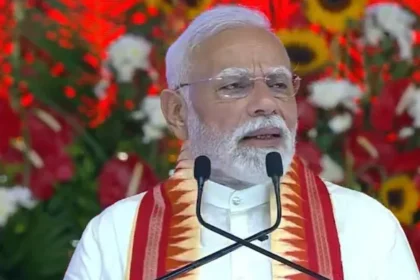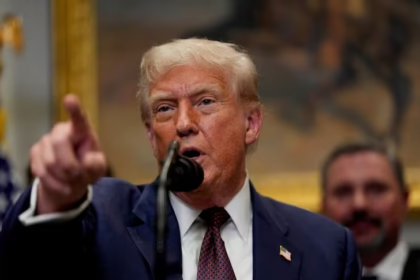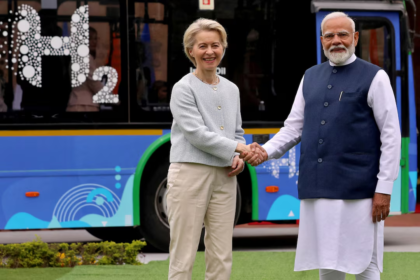Why India Overlooked the Zohran Mamdani Story: A Missed Political Moment
The Indian media has woken up late to the news of Zohran Mamdani, the 33-year-old who has now won the Democratic primary for mayor of New York City. To be fair, Mamdani was not initially seen as a frontrunner in the race, but he had been holding second place for a while. One poll, just before the elections, even gave him a slight edge. His comprehensive victory surprised many — likely even Mamdani himself.
Nonetheless, there were several compelling reasons for the Indian media to cover his journey. Mamdani was vying to become the first American of Indian origin to hold the powerful position of NYC mayor. New York City is a significant global hub, with a population of nearly 8.5 million — larger than that of all but 12 U.S. states — and an operating budget of over US $110 billion, which is nearly ten times that of Delhi.
More to the point, Mamdani ran his campaign with an enormous outreach to South Asians, with ads in Urdu/Hindi using Bollywood themes. And if anybody had forgotten, he is also the son of the famed filmmaker Mira Nair as well as of the respected Ugandan academic of Indian origin Mahmood Mamdani. Whether for serious reasons – a person of Indian origin managing one of the most important financial and creative cities in the world – or for simple entertainment reasons, Mamdani was a story that should have written itself for the Indian media.
And yet, go further back than a day or two and all you find is a deathly silence.
It is worth asking why.
The short, depressing answer is that Mamdani is Muslim — he identifies as a Shia of Twelver belief, if anyone is interested, though it is nobody’s business but his. As India has embraced Hindutva over the last dozen years, it has celebrated people of Indian origin like Priti Patel or the eminently forgettable and quickly forgotten Rishi Sunak, whose connections to India are more tenuous than Mamdani’s. Notably, both have steered clear of campaigning in any recognizably South Asian idiom.
For Muslims, Sikhs, and other minorities, the Indian government appears to have little time — often ignoring them or casting them as separatists. With much of the mainstream media feeling compelled to crawl before power, national discourse has narrowed, limiting how stories are framed and which voices are amplified.
But there is more to it than just that. If an Akhand Bharat – a larger South Asia where borders do not stand between people – exists, then it exists abroad. As anybody who has lived overseas can tell you, desis find it easy to be desis out of the subcontinent, to meet over food, music, and movies.
Divisions still remain, of course. I confess to being annoyed with some of my Pakistani-American cousins, and I recall a memorable iftar in upstate New York where I was one of only two people who identified as Indian, while the rest were very Kashmiri. Language, politics, and food can act as both barriers and bridges, but despite these differences, South Asians abroad have largely chosen to find common ground, preferring to mingle rather than remain divided.
A large part of this unity stems from the cultural groundwork laid by filmmakers and academics, including Zohran Mamdani’s parents. Their work helped shape a shared South Asian experience in the diaspora. This influence has contributed to Mamdani’s ability to reach across ethnic lines — a quality on full display when he warmly addressed a “Bangladeshi auntie” who had campaigned for him during his victory speech.
That capacious sense of self has largely evaporated during Narendra Modi’s tenure as Prime Minister. While he invited all South Asian heads of state to his first inauguration in 2014, the goodwill and diplomatic standing India once enjoyed across South Asia has steadily declined. In 2014, India was among the largest donors to Afghanistan’s government; today, it finds itself sidling up to the Taliban. Similarly, India was once a key player in supporting Myanmar’s democratic restoration — now it is fencing its borders due to the violence in Manipur, and its only channel of dialogue in Myanmar is the military junta.
In 2014, India held a pre-eminent position in Bangladesh, even while navigating China’s growing influence in the region. Now, it faces criticism for pushing people across the border, violating basic legal and humanitarian principles. A decade ago, Nawaz Sharif braved military resistance in Pakistan to attend Modi’s swearing-in ceremony. Today, even airspace remains closed between the two countries — a stark reflection of how far regional relations have deteriorated.
Many of these changes are ones in which India could do little, but not all. Furthermore, as Indian foreign policy has become more transactional, as it has touted its own power as a very large economy cumulatively (ignoring that at per capita levels, its people are hardly better off, and in some case worse off, than its neighbours’) it has looked to the US, Europe, and the world. The cost has been borne by the management of its relations in the neighbourhood.
When India passed its powerful Right to Information Act in 2005, countries lined up to learn from our experience. India exported its experience with police reform to other Commonwealth countries. Today, there is hardly any form of legislation in India that inspires South Asia and the world. If anything, we are cited as a caution of what could go wrong. It is incredibly ironic that the political party that bangs on about Akhand Bharat, putting up maps that strain our ties with our neighbours, has presided over the greatest withering of Indian appeal across the subcontinent.
This shift in India’s political stance has had an impact on the desi diaspora as well. While the India Impact Fund — an organization promoting Indian and South Asian American political participation — supported Zohran Mamdani, groups like Indian Americans for Cuomo and the American Hindu Coalition openly attacked him. Their opposition seems rooted in Mamdani’s criticism of Prime Minister Modi, which mirrors his stance on Israeli Prime Minister Benjamin Netanyahu.
Despite this, Mamdani’s comprehensive victory, with significant support from South Asians, is unlikely to resonate with those who endorse the current Indian government. As India finds itself increasingly isolated in its own neighborhood, its current policies are also leading to alienation among the South Asian diaspora abroad. A more diminished and inward-looking India now appears to be choosing to march alone, both at home and globally.
Also Read: Chhattisgarh Encounter: 2 Armed Women Naxalites Killed in Fierce Gunbattle with Police in Narayanpur








